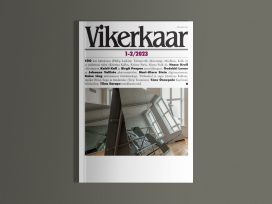
Clicks and tricks
Vikerkaar 1–2/2023
Why organised labour in Estonia is weaker than almost anywhere in Europe; how the gig economy could be made to work for labour; and what familiarity with everyday tools tells us about our plastic fork culture.

Why organised labour in Estonia is weaker than almost anywhere in Europe; how the gig economy could be made to work for labour; and what familiarity with everyday tools tells us about our plastic fork culture.
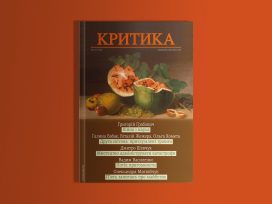
Better late than never: decolonising Ukrainian academia. Also: the WWII diaries of literary critic Viktoriya Kolosova; placenames and language politics; and poetry on Jewish-Ukrainian legacies.

Czech-Slovak reflections on the 30th anniversary of the breakup: why the partnership was unequal from the start; whether it was all the fault of Mečiar and Klaus; and why the Czechs really aren’t the more civilized.

How the British royal family seals the archives to preserve the myth of constitutional impartiality – and why the truth will out, if not in the courts then the Commonwealth.
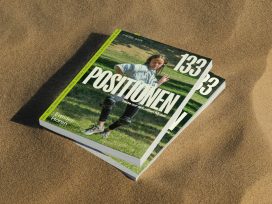
Featuring an interview with ambient pioneer Suzanne Ciani; the origins and meaning of ‘deep listening’; deconstructing the concert hall; and contemporary opera from Ukraine.
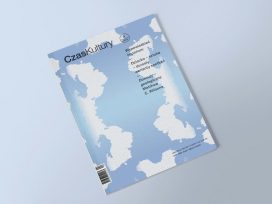
Why the West worries more about cancel culture than cultural annihilation; what orientalism means to eastern Europeans; and how Polish children’s literature is changing with the troubled times.

How accommodating Ukrainian refugees is a way for Romanian property-owners to make a quick buck; on the life of Baron Francz Nopcsa, the Indiana Jones of the Balkans; and short films portraying Romanian society from the edges.

Photos of Kherson’s emergence from occupation; visiting one of Ukraine’s ‘hubs of unbreakable-ness’; Aleksander Wienerberger’s images of the Holodomor; and exhibiting artefacts of the invasion.
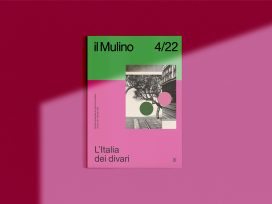
On the causes and remedies for the dramatic rise in inequality in post-pandemic Italy: including the gender pay gap, lack of pre-school provision in the South, and an education system that is failing the worse-off.
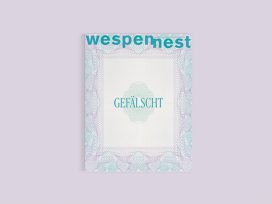
What the taboo on race fakery might be hiding; how it’s getting hard to write an objective history of Soviet modernism; why so many Russians believe the myth of peaceful empire; and how neutrality is Austria’ most self-serving fiction.

Dwutygodnik touches on a contemporary taboo: why hatred and other base emotions are no less valid than cool impartiality; how hating Russia doesn’t help; and why there’s hope in hate if we can channel it into change.

Esprit focuses on China: Xi’s rhetoric of struggle; why the CCP passes the test of totalitarianism; how ideology is exacerbating the slowdown; and what’s at stake in Taiwan. Also: Meloni and the politics of clownism.
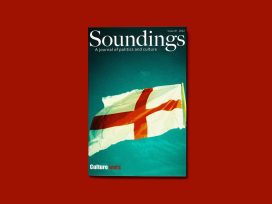
How culture in the UK has become the soft target for an improvised neo-Thatcherism; why the Left makes a mistake to denigrate cultural politics; how to understand the far-right’s online power-base; and why the BBC prefers to manufacture dissensus.
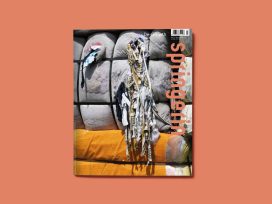
‘springerin’ on how the art world is coping with downgrading in a climate where ‘bigger is better’, re-engaging with the material world and dealing with the ‘big boys and their extractivist toys’.
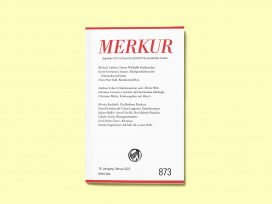
In ‘Merkur’: why Günter Wallraff’s 1985 bestseller ‘The Lowest of the Low’ appears scandalous by the standards of today’s racial justice discourse – but remains absolutely worth reading for its searing analysis of the exploitation of labour in wealthy democracies.
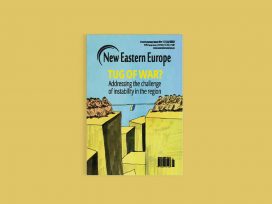
In ‘New Eastern Europe’: why the West should not be fooled by Russia’s Cold War revivalism; whether Ukraine can turn the tables; and where now after the ruins of Ostpolitik?